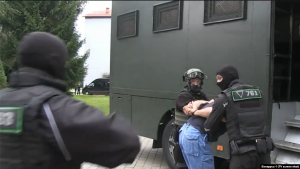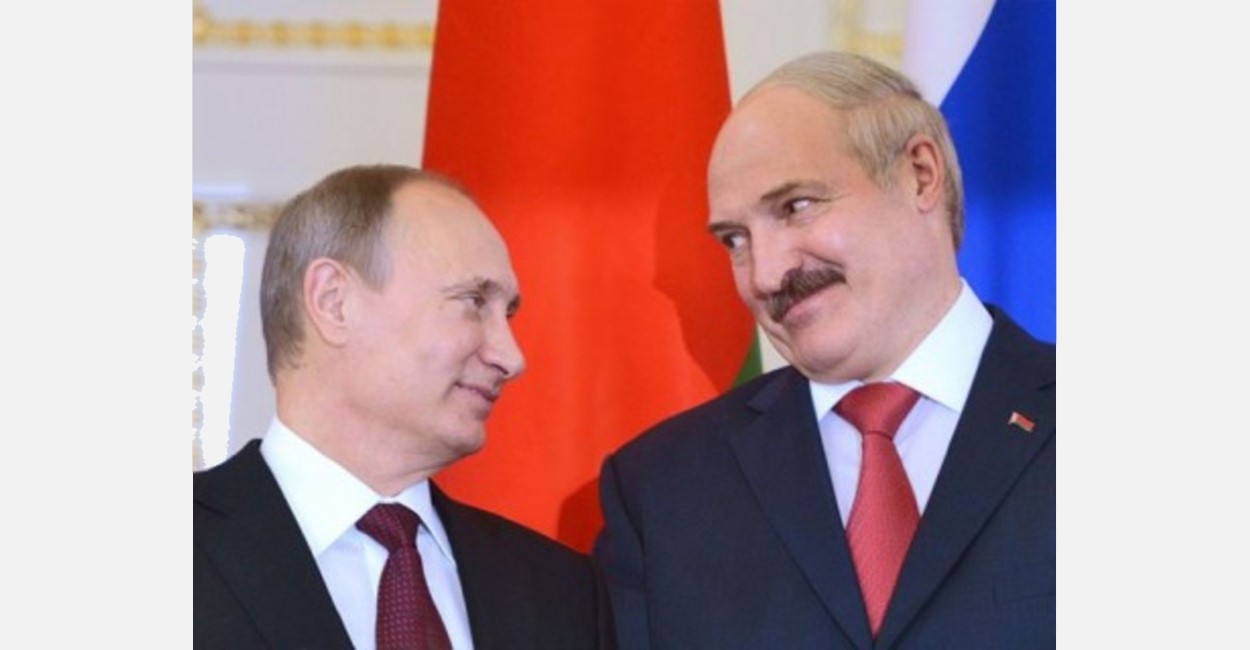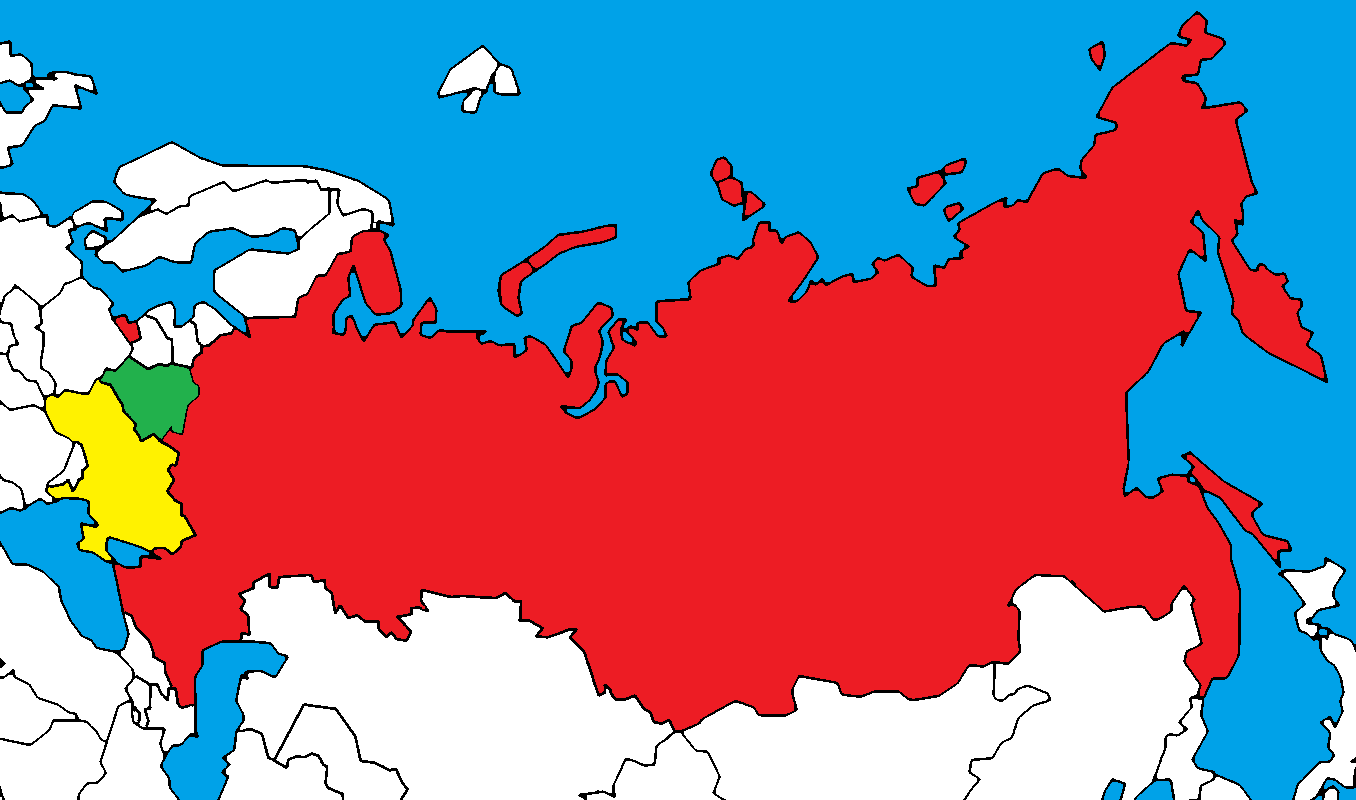Belarus is Ukraine’s neighbor, an important trading partner, and in particular, a supplier of fuel for military aircraft, as well as lubricants and fuel for the Ukrainian Armed Forces.
Despite its position as a formal ally of Russia, the Belarusian state does not recognize the occupation and annexation of Crimea and assures that its territory will not serve as a springboard for an attack on Ukraine. However, this status quo may change, as this year’s election in Belarus is not evolving according to the usual plan – and a window of opportunity emerges for a Russian power scenario in the unrest that is sure to follow Lukashenka’s predictable victory.
Ukraine as the bogeyman

For the first time in 26 years, Alyaksandr Lukashenka is rapidly, and probably irreversibly, losing his popularity. Lukashenka’s long-standing mantra of maintaining order for the sake of order and his agrarian populism have proved ineffective against the background of an economic decline, which the World Bank predicts will be the biggest slowdown in 25 years and could reach 4% in 2020.
As opinion polls are banned in Belarus, we can only gauge Lukashenka’s unpopularity and weakness by his nervous and erratic behavior: unprecedented persecution of potential candidates and activists (hundreds of Belarusians arrested or fined; open and criminal proceedings against peaceful protesters), banning international observers from the OSCE, and chaotic investigations into so-called “external interventions.”
Lukashenka also believes that Ukraine has a negative influence on Belarus. He has often mentioned Ukraine as a bad example to follow. In particular, he promises not to allow “Maidan activists” and “Banderites” to wreak havoc in Belarus.
Lukashenka often refers to Ukraine as a country of “chaos and disorder,” thus justifying his resistance to popular protests in Belarus and insisting on the need to maintain “law and order” according to his own rules.
On the other hand, Belarusian opposition leaders see new opportunities in post-Maidan Ukraine, both for Ukrainian and Belarusian society. According to a study by the New Europe Center, they often view Ukraine as a possible role model for democratic transformations in Belarus.
In fact, Belarusian opposition forces are ready to focus on Ukraine’s achievements, namely an active and engaged civil society, free media, more rights and freedoms than in Belarus, and regular transfer of state power.
Casual is trendy!

There are certain parallels between the Euromaidan events in Ukraine in 2013-2014 and the 2020 elections in Belarus, which may trigger inevitable changes in the Belarusian state.
First, there’s a definite surge in civic actions and self-organization and an increase in civil society activities. What is happening now in Belarus may well precede the widespread mobilization expected in the country after August 9. Belarusians are actively self-organizing to do what the state is unable or unwilling to do, such as helping coronavirus victims and creating groups of independent election observers.
Secondly, Aleksandr Lukashenka, like Viktor Yanukovych, does not realize that society has changed and is no longer ready to put up with authoritarian rule. Belarusians who support alternative candidates are united not by specific political programs, but by one slogan: “Anyone but Lukashenka!”
The Belarusian presidential campaign also contains references to last year’s presidential election in Ukraine. In 2019, many Belarusians monitored the election campaign in Ukraine, and Volodymyr Zelenskyy impressed many of them with his casual and unsystematic approach.
Among Lukashenka’s rivals in the upcoming elections (including those who could compete with him if he had not put them behind bars) are video blogger Siarhey Tsikhanousky, his wife Sviatlana, and former Belgazprombank chairman Viktor Babaryko.
Although they have no political experience, they were able to mobilize Belarusians who do not normally vote, thus stealing part of Lukashenka’s electorate.
There are also examples of direct imitations. Thus, one of the presidential candidates, Siarhey Cherechen, borrowed the popular “ZE!” campaign slogan of Zelensky’s team, calling his team “CHE!”
The Russian scenario
Despite such similarities, there are notable differences between protests in Ukraine in 2014 and Belarus in 2020.
It should be noted that none of Lukashenka’s rivals question Belarus’ foreign policy. So, we should pay particular attention to the impact the Belarusian elections might have on Ukraine.
To a large extent, this will depend on how large and how peaceful the protests will be after the Central Election Committee announces Alyaksandr Lukashenka’s victory, and how aggressively the Belarusian president will react to public discontent.
If the protests are suppressed too harshly, the EU could extend personal sanctions against Belarusian politicians. There is reason to believe that Ukraine will join these restrictive measures, as it has done in previous years.
Should this happen, the relations between Belarus and Western countries will sour and Russia will remain as the only ally of the Belarusian state.
As Belarus is in dire need of external funding, only Russia will be able to provide it, but Moscow will certainly demand something in exchange, such as strengthening ties and integrating Belarus further into the Union State*, that is, partially or completely losing the possibility to approve sovereign decisions in the country.
If a “Maidan” happens in Belarus and Lukashenka is removed, the country will be able to hold new, democratic elections. The main opposition leaders can take the lead and win – Siargei Tsikhanouski, Viktar Babaryka, or Valery Tsapkala.
This scenario could open new opportunities for economic cooperation between Ukraine and Belarus, as these candidates advocate the liberalization of the Belarusian economy. However, none of these candidates can be called pro-Western, as they are quite satisfied with Belarus balancing between Russia and the West.
In addition, Russia may not recognize the results of the Belarusian election and “come to the assistance of the Belarusian nation,” eventually putting its own people in power. Moreover, the arrest of 33 Russian mercenaries in Belarus indicates that Russia is ready to use force in the upcoming election campaign.

In particular, Russian Special Forces may provoke violence during rallies and post-election protests in an attempt to turn a peaceful protest into a bloody confrontation between the authorities and ordinary citizens. The Kremlin’s objective would be to seize power in Belarus or create a negative image of Lukashenka so that he becomes isolated by the international community and easier for Moscow to manage.
This is fundamentally important for Ukraine. If the Russian power scenario works, Ukraine will find itself in a more hostile environment, with Russia threatening Ukraine from the east, north, and south.
On August 4, Belarusian President Alyaksandr Lukashenka delivered his state of the nation address, which lasted for about an hour and a half. He stated that in a “world that is becoming more and more unstable and unpredictable, there is no alternative to a strong state” and underlined that Belarus “remains an island of stability and order in Central Europe.”
Key quotes regarding protests and elections:
- We must differentiate between real politicians, the real opposition, and wooden puppets. You can’t lead the country by appearing out of nowhere. We know all about those factories where such candidates come off the conveyor belts. They appear, deceive, provoke, set people up, and then get recalled by their owners. [These] poor girls* don’t understand what they’re talking about or what they’re doing. But we see who’s behind them. We’re taking a number of serious steps to counter this treat. [*Lukashenka is referring to presidential candidate Sviatlana Tsikhanouskaya and her associates Veranika Tsapkala and Mariya Kalesnikava].
- The authorities aren’t muzzling anyone; you can go out and join authorized rallies. But if a rally is forbidden, any participant is a violator, not just the organizer. The reaction will be instant, and the response will be the most severe. [If] you want a different president, go to the polling stations and not a public square. We – the authorities and I – will accept your decision. But if you aren’t capable and aren’t ready for something, step aside, stay out of it, get out of our way and let us save the country.
- All young people are valuable to the state. Those who, under the influence of emotions and, possibly, beliefs, are standing in solidarity chains, and those who took an oath to defend their fatherland from threats. The state is responsible for all of its children. We must protect young people from harmful behavior. These puppeteers will fail!
Euronews report on upcoming Belarus elections (in English, 2:45 min)
Read also:
- At least 240 arrested in Belarus protests against barring of opposition candidates (photos, videos)
- Russian Wagner mercenaries arrested in Belarus: ‘little green men’ scenario, fighters in transit, or other?
- Belarusian police join #NotMyPresident flashmob amid continued rallies for Lukashenka’s rivals








